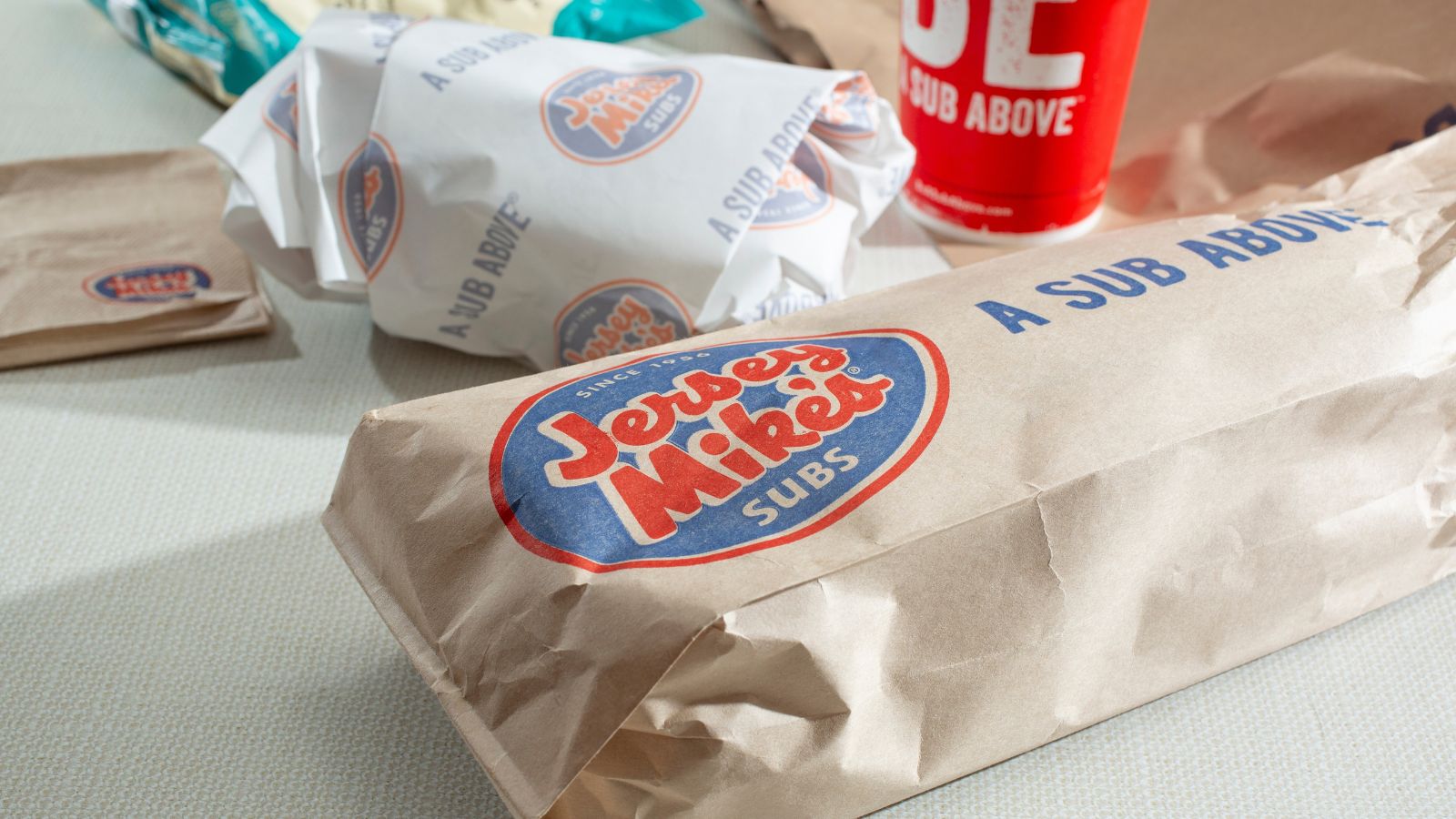The ongoing U.S. tariffs have created significant challenges for Canadian businesses, making it harder to export goods, access materials, and maintain profitability. However, many Canadian entrepreneurs are finding creative solutions to thrive rather than accepting limitations. By expanding into global markets, adopting new technologies, and investing in local talent, these visionary business leaders prove that Canada can succeed independently of U.S. trade policies. Here’s a look at 23 entrepreneurs leading the way, turning obstacles into opportunities and ensuring Canadian businesses remain strong.
Tobi Lütke – Shopify

Michele Romanow – Clearco

Michele Romanow, co-founder of Clearco, has developed an AI-driven funding solution that provides revenue-based financing to startups. This model eliminates the need for U.S. venture capital, allowing Canadian businesses to grow independently. With U.S. tariffs impacting investment flow, Clearco ensures that startups can scale without taking excessive financial risks. Romanow’s approach is revolutionizing how Canadian businesses secure funding and expand internationally.
Stewart Butterfield – Slack

Slack, co-founded by Stewart Butterfield, is one of the world’s leading business communication platforms. Slack has become a dominant force in workplace collaboration without relying on American trade policies, focusing on expanding into Europe and Asia. Butterfield’s innovation has positioned Canada as a global leader in tech, proving that U.S. restrictions don’t have to limit Canadian entrepreneurs.
Ryan Holmes – Hootsuite

Ryan Holmes, the founder of Hootsuite, has transformed how businesses manage social media marketing. As U.S. tariffs create uncertainty, Holmes has helped Canadian businesses build strong digital brands that reach audiences worldwide. By focusing on international expansion, Hootsuite ensures that companies can grow their online presence without depending on the U.S. market.
Dax Dasilva – Lightspeed

Dax Dasilva’s Lightspeed provides cloud-based solutions for retailers and restaurants, helping them compete in a digital economy. With U.S. tariffs raising costs for imported goods, Lightspeed offers Canadian businesses a way to streamline operations and expand internationally. By embracing technology and automation, Dasilva is helping local businesses remain competitive without depending on American supply chains.
Bruce Linton – Canopy Growth

Bruce Linton positioned Canopy Growth as a global leader in legal cannabis production, avoiding reliance on the U.S. market. While U.S. regulations limit cannabis exports, Linton focused on expanding into European and Asian markets, ensuring that Canada remains a leader in the booming cannabis industry. His forward-thinking approach is opening new economic opportunities for Canadian businesses.
Dani Reiss – Canada Goose

Canada Goose CEO Dani Reiss has adapted to U.S. tariffs by focusing on direct-to-consumer sales and expanding into international markets. Instead of relying on American retail stores, Canada Goose has built a strong presence in Asia and Europe, keeping the company profitable despite trade restrictions.
Angela Tran – Kindred AI

Angela Tran is at the forefront of AI and robotics with Kindred AI, a company specializing in warehouse automation technology. With the U.S. limiting access to advanced AI markets, Kindred AI has partnered with European and Asian businesses, ensuring Canada remains a global player in AI-driven logistics.
Harley Finkelstein – Shopify

As Shopify’s President, Harley Finkelstein has been instrumental in helping Canadian entrepreneurs sell to international markets. With U.S. tariffs affecting traditional export channels, Shopify is giving small businesses access to customers in Asia, Europe, and beyond, reducing dependence on American buyers.
Mike Katchen – Wealthsimple

Mike Katchen’s Wealthsimple makes investing more accessible by offering commission-free trading and automated financial planning. With U.S. tariffs creating market instability, Katchen has expanded Wealthsimple’s reach into European and Asian markets, reducing reliance on American financial institutions. His platform is helping Canadians invest confidently while keeping their money within the country’s economy.
Allen Lau – Wattpad

Allen Lau’s Wattpad has transformed digital publishing by allowing writers to share their stories worldwide. Instead of depending on U.S. publishing houses, Wattpad connects Canadian authors with global audiences in Asia, Latin America, and Europe. The platform’s international success proves Canada’s creative industry can thrive without U.S. dominance.
Michele Maheux – Elevating Canada’s Film Industry

Michele Maheux has played a key role in strengthening Canada’s entertainment sector, particularly through the Toronto International Film Festival (TIFF). As U.S. tariffs impact Hollywood collaborations, Maheux has worked to position Canada as a global hub for independent and international filmmaking, creating more opportunities for Canadian artists.
Brenna Anseeuw – Fresh Routes

Brenna Anseeuw’s Fresh Routes addresses food insecurity by bringing fresh, affordable groceries to underserved areas. With U.S. tariffs raising the cost of imported food, Fresh Routes focuses on supporting local farmers and sustainable agriculture, ensuring Canadians can access affordable, homegrown produce.
Mallorie Brodie & Lauren Lake – Bridgit

Mallorie Brodie and Lauren Lake’s company, Bridgit, has revolutionized the construction industry with AI-powered project management tools. Instead of relying on U.S.-based software, Bridgit provides Canadian companies with homegrown solutions that optimize workflow, ensuring that Canada’s infrastructure sector remains competitive.
Satish Kanwar – Shopify

Satish Kanwar, a VP at Shopify, has been instrumental in expanding the company’s global commerce tools. By integrating multi-currency support and international logistics solutions, Kanwar ensures Canadian businesses can thrive beyond the U.S. market, reducing dependence on American consumers.
Christine Day – Luvo

Christine Day, former CEO of Lululemon, is now leading Luvo, a company focused on nutritious, chef-crafted frozen meals. With U.S. tariffs making imported health foods more expensive, Luvo prioritizes locally sourced ingredients, making healthy eating more accessible and affordable for Canadians.
Joshua Ostroff – Media Entrepreneurship in Canada

Joshua Ostroff is reshaping Canada’s media landscape by focusing on digital-first journalism that doesn’t rely on U.S. partnerships. As advertising revenue shifts away from traditional media, Ostroff’s innovations ensure that Canada’s storytelling industry remains strong and independent.
Jay Myers – Bold Commerce

Jay Myers’ Bold Commerce provides custom e-commerce solutions, helping Canadian businesses sell globally without relying on the U.S. market. By integrating with platforms like Shopify, Bold Commerce allows retailers to scale internationally, ensuring that tariff-related restrictions don’t limit growth.
Patrick Spence – Sonos

Patrick Spence, CEO of Sonos, is keeping Canada at the forefront of smart home technology. Instead of depending on U.S. suppliers, Sonos has diversified its production and distribution to minimize the impact of trade barriers, ensuring steady business growth.
Ben Zifkin – Hubba

Ben Zifkin’s Hubba is an innovative B2B wholesale marketplace that connects independent Canadian brands with international retailers. With U.S. tariffs making cross-border trade more difficult, Hubba ensures that small businesses have alternative pathways to global markets.
Bruce Croxon – Round13 Capital

Bruce Croxon, co-founder of LavaLife and now a partner at Round13 Capital, actively invests in Canadian entrepreneurs. With U.S. tariffs restricting trade opportunities, Croxon focuses on scaling Canadian startups locally and internationally, ensuring they grow independently of American venture capital.
Manjit Minhas – Minhas Brewery

Manjit Minhas, co-founder of Minhas Brewery, has built one of Canada’s largest independent breweries. While U.S. tariffs have made it harder to export Canadian alcohol, Minhas has expanded into Europe and Asia, proving that Canadian brands can thrive in international markets without depending on the U.S.
Conclusion

The entrepreneurs on this list prove that Canadian businesses don’t need to rely on the U.S. to thrive. These leaders ensure that Canada remains competitive despite trade restrictions by focusing on innovation, global expansion, and self-sufficiency. With investments in technology, local supply chains, and international markets, Canadian businesses are adapting and succeeding in the face of economic challenges. As more companies shift towards sustainable, independent growth, Canada’s entrepreneurial spirit will only strengthen, proving that the country can stand strong, with or without U.S. trade relations.
25 Countries Predicted to Become Economic Superpowers in the Next 20 Years

The strength of an economy plays a crucial role in various international policies about trade and relations. Certain factors determine the strength of an economy, including population growth, availability of resources, and development and advancement. Here are 25 countries predicted to become economic superpowers in the next 20 years
25 Countries Predicted to Become Economic Superpowers in the Next 20 Years
